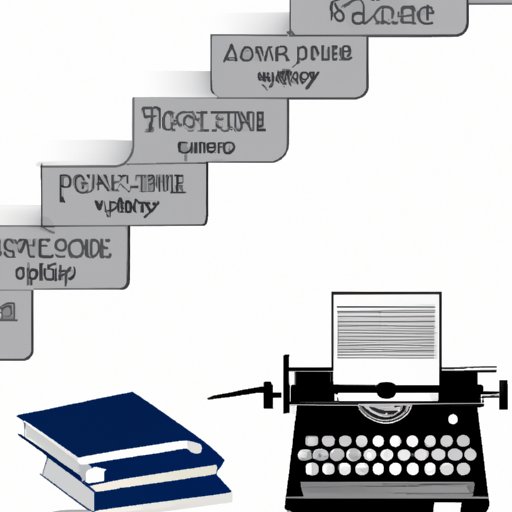Introduction
Journalistic writing has been around since the 18th century, when it was used as a way to report on events happening in the world. Today, it is still an important tool for communicating news and information, but it has evolved to include more than just reporting. It is now used to create compelling stories that engage readers and help them connect with the subject matter. To understand what journalistic writing is, it is important to look at its history, explore current trends, and analyze examples of recent pieces.

Interviewing an Expert in the Field of Journalism
When researching a topic, one way to gain insight into the field is by interviewing an expert. When interviewing someone who works in journalism, it is important to ask questions about their experience in the field, the types of stories they have written, what makes a good story, and how technology has impacted journalism. Asking open-ended questions can help get the most out of the conversation. Additionally, having an understanding of the person’s background will help make the conversation more meaningful.

Exploring History of Journalistic Writing
The history of journalistic writing dates back to the 18th century when newspapers began to report on events happening in the world. Since then, journalistic writing has evolved to include different forms such as feature articles, opinion pieces, and investigative reports. Throughout history, there have been some influential and groundbreaking works that have shaped the field of journalism. Examples include Ida Tarbell’s 1904 exposé on Standard Oil, Edward R. Murrow’s radio broadcasts during World War II, and Bob Woodward and Carl Bernstein’s coverage of the Watergate scandal in 1972.

Examining Current Trends in Journalistic Writing
Today, there are many popular topics that journalists write about. These include politics, business, health, science, sports, and entertainment. As technology continues to evolve, so do the ways in which journalists report stories. For example, social media is being used to share stories more quickly and access more sources. Additionally, multimedia elements such as photos, videos, and audio clips are being used to enhance stories and make them more engaging.
Analyzing a Recent Example of Journalistic Writing
To get a better understanding of what journalistic writing looks like in practice, it’s helpful to analyze a recent example. Before doing this, it’s important to choose a piece that is well-written and covers a relevant topic. Once you’ve chosen a piece, take time to break down the structure of the article. Pay attention to the use of quotes, facts, and narrative elements. Finally, assess the effectiveness of the piece by determining how well it communicates the main point.
Creating a Step-by-Step Guide to Writing Journalistically
Writing journalistically requires a certain set of skills and knowledge. To help develop these skills, here is a step-by-step guide to writing journalistically:
- Research the topic thoroughly and find reliable sources.
- Craft a compelling narrative that engages the reader.
- Include facts, quotes, and other elements to support the story.
- Edit and proofread the piece to ensure accuracy.
Conclusion
Journalistic writing is a valuable skill to have. Understanding its history and exploring current trends can help writers create effective pieces. Additionally, analyzing recent examples and following a step-by-step guide can help to develop the necessary skills for writing journalistically. With the right tools, anyone can become a successful journalist.
For more information on journalistic writing, check out the resources below:
